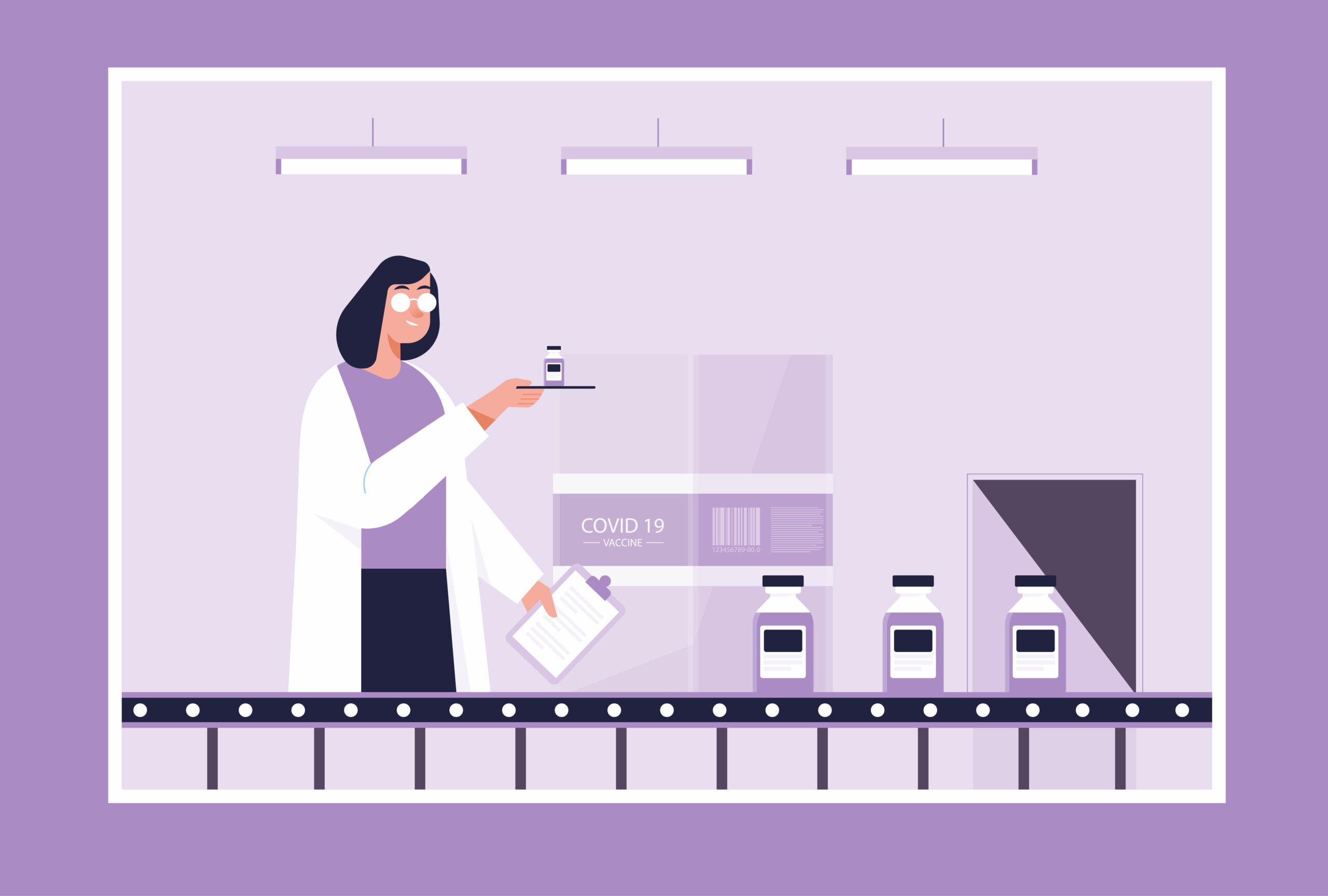The pharmaceutical industry is highly regulated and complex, with numerous stakeholders, stringent regulations, and evolving healthcare policies. Contract management plays a critical role in ensuring smooth operations, compliance, and risk mitigation for pharmaceutical companies. Efficient contract management is vital for pharmaceutical companies to stay competitive, lower costs, and maintain good relationships with suppliers, healthcare professionals, Contract Research Organizations (CROs), and other partners.
Managing contracts in the pharma industry involves dealing with various types of agreements, including clinical trial agreements, licensing agreements, and research and development contracts. These contracts are vital for sourcing raw materials, conducting clinical trials, manufacturing drugs, and bringing new drugs to market. However, the large number and complexity of these contracts make managing them manually difficult and prone to mistakes.
To overcome these challenges, pharma companies are increasingly using contract management software. Contract management software streamlines the contract process, improves efficiency, enhances compliance, and reduces risks. This blog will discuss the importance of efficient contract management in the pharma industry, the main challenges faced, advancements in contract management software, and the benefits of using such software. It will also offer best practices for choosing and successfully implementing pharmaceutical contract management software.
Key Challenges in the Pharmaceutical Industry

Fragmented Contract Management: Pharmaceutical companies encounter challenges when contracts are managed separately by various departments. This fragmented approach makes it hard to oversee everything effectively. Without standardized methods for handling contracts, these complexities are compounded. Therefore, there’s a need for simpler and more organized approaches to managing contracts more efficiently.
Navigating Regulatory Rigor: In the pharmaceutical industry, companies must comply with strict regulations from agencies like the FDA and EMA. Contracts must align closely with these rules to ensure drug safety and effectiveness. This makes contract management more complex because any deviations can lead to serious legal and financial issues. Therefore, adherence to regulations is crucial for pharmaceutical companies to operate legally and maintain their operations’ integrity.
Consequences of Non-Compliance: When a company doesn’t do what it promised in contracts or breaks rules set by regulators, it can lead to serious consequences. For example, the company might have to pay fines, experience delays in launching products, or find it hard to earn money. These problems can affect the company’s ability to operate smoothly and succeed in its business goals.
Similarly, in business, not following the rules can lead to big consequences that can harm the company’s success. That’s why businesses must be very careful and follow all the rules closely.
Embracing Digital Solutions for Efficiency: To tackle these problems, pharmaceutical companies are using more and more digital tools, especially contract lifecycle management software. These systems bring all contracts together in one place, make sure everyone follows the same steps, and do some tasks automatically. This makes things run smoother and reduces the chances of breaking any rules.
Related Article: Contract Law: Understanding Legal Agreements
Types of Agreements Used in the Pharma Sector
Research and Development (R&D) Agreements
Research and Development (R&D) agreements in the pharmaceutical sector delineate collaborative efforts between various entities engaged in drug discovery and development. These agreements define what the research aims to achieve, specify who owns the ideas created, and decide how money and resources will be used. Also, keep information confidential and share data, follow rules from regulators, explain how to end the agreement, or solve problems if they happen.
R&D agreements help pharmaceutical companies, research institutions, biotech firms, and others work together formally. They advance medical science while managing risks, encouraging innovation, and following ethical and legal rules.
Licensing Agreements
In the pharmaceutical industry, a Licensing Agreement is a key contract. It allows one party (the licensor) to permit another party (the licensee) to use patented ideas or other intellectual property. These agreements detail things like how much money is paid, where the rights apply, how to ensure quality, and when the agreement can be ended. This helps ensure both sides know their responsibilities and rights.
These agreements help pharmaceutical companies use their own research and development work. They make it easier to share and sell new medicines. Both sides must follow laws and rules to protect their interests.
Clinical Trial Agreements
In the pharmaceutical industry, a Clinical Trial Agreement (CTA) is an important contract between a sponsor, often a pharmaceutical company or research institution, and a clinical trial site or investigator.
This agreement sets out how a clinical trial will happen. It includes the study plan, what each side must do (like giving the drug and sharing data), money matters such as paying and expenses, keeping trial details private, insurance, and what happens if the agreement stops early. CTAs make sure trials are done correctly, follow rules, and protect the rights of sponsors, investigators, or trial sites in medical research and making new drugs.
Licensing contracts
Licensing contracts in the pharmaceutical industry let one company use another company’s ideas, like patents or technologies, to develop, make, or sell drugs. These contracts say how the ideas can be used, like how much money to pay, where they can be used, how to keep things high-quality, and how to keep ideas safe and private.
They are very important because they help pharmaceutical companies use new research and technologies. This makes it easier to create and sell new drugs. They also make sure everyone follows the law and protect the interests of both sides.
Related Article: 7 Key Contract Clauses Found In Business Contracts
Benefits of Implementing Pharmaceutical Contract Management Software

Implementing pharmaceutical contract management software offers numerous benefits for medical companies. These benefits span the entire contract lifecycle, from contract creation and negotiation to performance management and compliance.
One of the key benefits of contract management software is accelerated contract lifecycle processes. Automation of contract creation, negotiation, and approval workflows reduces manual effort and speeds up contract turnaround times. This enables pharmaceutical companies to be more agile, responsive, and efficient in their contracting processes.
Improved contract visibility and compliance is another significant benefit of contract management software. Real-time access to contract data, automated alerts for key milestones and obligations, and robust reporting capabilities enhance visibility into contract performance. This visibility helps medical companies ensure compliance with contractual terms, regulatory requirements, and industry standards, reducing the risk of non-compliance and associated penalties.
Accelerated Contract Lifecycle Processes
Implementing pharmaceutical contract management software accelerates contract lifecycle processes, leading to operational efficiencies and improved business outcomes. Automation of contract creation, negotiation, and approval workflows reduces manual effort, eliminates bottlenecks, and speeds up contract turnaround times. This enables pharmaceutical companies to be more agile, responsive, and efficient in their contracting processes.
Contract management software also streamlines contract administration processes, such as contract storage, search, and retrieval. Centralized storage of contract data and advanced search capabilities enable quick and easy access to contract information, reducing the time and effort required for contract management tasks.
Furthermore, contract management software improves collaboration among stakeholders by providing a centralized platform for contract-related communication, document sharing, and task assignments. This enhances communication and coordination, leading to faster contract execution and better overall operational efficiency.
Improved Contract Visibility and Compliance
Implementing pharmaceutical contract management software improves contract visibility and compliance for pharmaceutical companies. Real-time access to contract data, automated alerts for key milestones and obligations, and robust reporting capabilities enhance visibility into contract performance.
Contract management software enables pharmaceutical companies to track contract milestones, renewal dates, and compliance obligations proactively. Automated alerts and reminders ensure that contractual commitments are met on time, reducing the risk of non-compliance and associated penalties.
Additionally, contract management software facilitates compliance with regulatory requirements and industry standards. It enables the creation and enforcement of quality agreements, ensuring that suppliers and partners meet the necessary quality standards. By centralizing contract data and ensuring compliance with contractual terms and regulatory requirements, contract management software helps pharmaceutical companies maintain the highest standards of quality and compliance.
Related Article: What Is A Contract Repository? Effective Contract Storage
Best Practices for Selecting Contract Management Software

Selecting the right contract management software is crucial for pharmaceutical companies to achieve optimal results and meet their specific needs. Here are some best practices to consider when selecting contract management software:
- Identify specific needs and requirements: Assess your organization’s unique requirements, such as contract volume, complexity, integration needs, and compliance requirements. This will help you identify the features and capabilities you need in contract management software.
- Evaluate vendor expertise and support services: Research and evaluate potential vendors based on their industry expertise, track record, customer reviews, and support services. Look for vendors that understand the specific challenges and requirements of the medical industry.
- Consider scalability and flexibility: Choose contract lifecycle management (CLM) software that can scale with your organization’s growing needs and adapt to changing industry regulations and requirements. Flexibility in customization and integration with existing systems is essential.
- Ensure user-friendliness and ease of adoption: User-friendliness and ease of adoption are critical factors for successful implementation and user acceptance. Choose contract management software with an intuitive interface and comprehensive training and support resources.
Related Article: Contract Compliance: Importance & Best Practices
Why Choose Volody’s CLM Software?

Volody’s AI contract management software is specially designed to help pharmaceutical companies make their contract processes smoother and more efficient. It helps manage clinical trials and improves visibility across various locations, making it easier to track and speed up approvals with smarter contracts. This software simplifies the whole contract management process, ensuring that everything runs smoothly and quickly, which is crucial for pharmaceutical companies.
With Volody CLM, pharmaceutical companies can increase productivity, improve visibility, and maintain full control of their contracts. The tool uses AI and machine learning to create flexible steps, handle complicated agreements, and make it easy for different departments to collaborate. From managing obligations to providing detailed reporting, Volody’s platform ensures compliance and efficiency, making it an invaluable asset for the pharmaceutical industry.
Related Article: Top 10 Contract Management Best Practices In 2024
Features of Volody’s AI CLM Software

Compliance Assurance
To ensure both regulatory and internal compliance, our system incorporates built-in checks and comprehensive audit trails. These features provide a transparent and verifiable record of all contract-related activities, enabling meticulous tracking and verification. The built-in checks make sure we follow all the rules and company policies throughout the contract process.
At the same time, detailed audit trails record every action taken, showing who did it and when. This creates a clear history of contract activities. This method reduces the risk of not following rules and makes audits and internal reviews simpler. It ensures that your contract management is strong and accountable.
Complex Agreement Handling
Make managing and negotiating complex agreements easier with our advanced tools designed for tough contract needs. Our solutions ensure every part of the process is efficient and precise, helping you handle complex agreements confidently.
By simplifying the process and enhancing clarity, our tools enable seamless management from creation to finalization. This not only saves time but also reduces errors, fostering smoother negotiations and stronger contractual outcomes. Our innovative approach helps you handle tough agreements easily, making sure everyone follows the rules and trusts each other.
Obligation Management
Effortlessly monitor and manage your contractual obligations with our tool, ensuring all parties fulfill commitments and meet deadlines seamlessly. This streamlined process enables effective oversight, ensuring tasks are completed as agreed upon. By centralizing monitoring, it promotes operational smoothness and builds trust among stakeholders.
Automated alerts and notifications keep everyone informed, enhancing accountability and reducing the risk of oversights or delays. This proactive approach not only makes things run smoother but also helps everyone follow the contract rules better. It creates a dependable way for businesses to work together and reduces the chance of arguments.
Approval Workflows
Our contract management tool makes it easy to create, review, and approve contracts. It customizes workflows to match how your business works.
This means less manual work and faster times for getting things done. It helps teams work together better and make decisions faster. The tool is flexible, so it can follow rules and laws easily. This makes work go smoother and lowers the chance of mistakes or delays.
Related Article: Elevate Technology Industry With Contract Management Software
Frequently Asked Questions
What Features Are Essential in Pharmaceutical Contract Management Software?
Key features of pharmaceutical contract management software include automating the creation, negotiation, and approval of contracts, tracking compliance, centralized contract storage, document management, and real-time access to contract information. These features help improve efficiency and ensure that companies follow regulations in the pharma industry.
How Does Contract Management Software Impact Time-to-Market for Pharmaceuticals?
Contract management software can positively impact time-to-market for pharmaceuticals by streamlining the contract management process. By reducing contract negotiation times, improving collaboration among stakeholders, and ensuring timely contract approvals, contract management software contributes to faster drug development and commercialization.
Can Small Pharma Companies Benefit from Contract Management Software?
Yes, small pharma companies can benefit from a contract management software. Contract management software offers scalability, cost-effectiveness, and operational efficiency, regardless of the company’s size. It helps small pharma companies streamline their contracting processes, ensure compliance, and reduce risks, ultimately driving better business outcomes.
Conclusion
Efficient contract management is crucial in the fast-paced pharmaceutical industry. By streamlining operations, reducing costs, and improving compliance, pharma companies can handle complex regulations and meet stakeholder expectations. Advanced technologies like AI and blockchain improve contract analysis, security, and transparency. Implementing modern contract management software speeds up processes, ensures compliance, and enhances visibility.
Choosing the right software means figuring out what you need, checking the vendor’s expertise, and ensuring it integrates well with your current systems. Successful implementation requires getting your team ready for changes and making sure it fits smoothly with what you already use. Adopting new solutions can transform pharmaceutical contract management, benefiting companies of all sizes.





